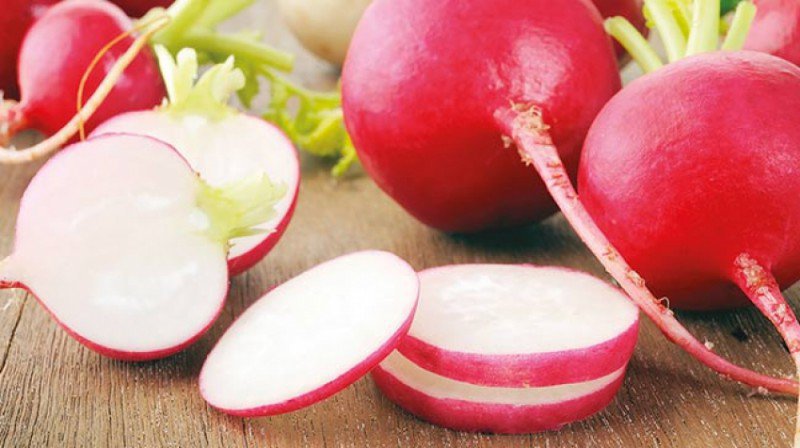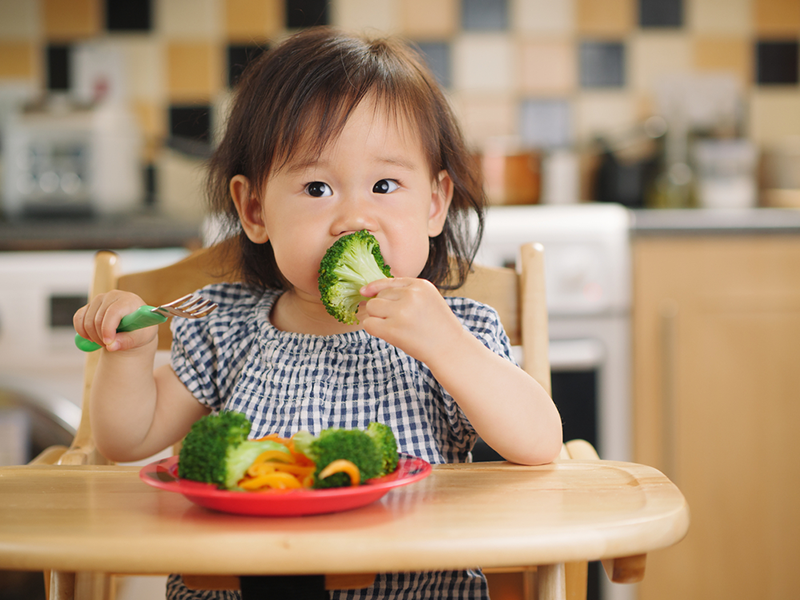Are pickled radishes good for you?
Pickled beets are a convenient alternative to fresh beets. This food is rich in nutrients and offers many of the same health benefits as fresh beets, but with a longer shelf life. However, pickled beets can also contain a lot of salt and sugar, many people wonder if pickled beets are really good for the body.
1. Nutritional value
Beetroot is a root vegetable that is often used in pickling and salting.
Although fermentation causes a small loss of nutrients, pickled beets are still a rich source of vitamins and minerals. A 3.5-ounce (100-gram) serving of pickled beets provides:
Calories: 65 Protein: less than 1 gram Fat: less than 1 gram Carbs: 16 grams Sugar: 11 grams Fiber: less than 1 gram Copper: 13% Daily Value (DV) Manganese: 10% DV Folate : 7% DV Riboflavin: 4% DV Magnesium: 4% DV Vitamin C : 3% DV Pantothenic acid: 3% DV Vitamin B6 : 3% DV Choline : 3 % DV Radishes are particularly rich in natural sugars, copper, folate and manganese. These nutrients help increase energy levels, build DNA, regulate the body's immune system, and build and repair tissues and bones.
Although fermentation causes a small loss of nutrients, pickled beets are still a rich source of vitamins and minerals. A 3.5-ounce (100-gram) serving of pickled beets provides:
Calories: 65 Protein: less than 1 gram Fat: less than 1 gram Carbs: 16 grams Sugar: 11 grams Fiber: less than 1 gram Copper: 13% Daily Value (DV) Manganese: 10% DV Folate : 7% DV Riboflavin: 4% DV Magnesium: 4% DV Vitamin C : 3% DV Pantothenic acid: 3% DV Vitamin B6 : 3% DV Choline : 3 % DV Radishes are particularly rich in natural sugars, copper, folate and manganese. These nutrients help increase energy levels, build DNA, regulate the body's immune system, and build and repair tissues and bones.

Củ cải đường cũng là một nguồn giàu chất chống oxy hóa
Beets are also a rich source of flavonoid and polyphenol antioxidants, which protect the body from disease by fighting free radical molecules. In fact, beets are considered one of the 10 plants with the highest antioxidant activity, particularly rich in betalain and betanin, the two polyphenols that give this vegetable its deep red color.
However, the process of pickling beets with vinegar reduces antioxidant levels by 25% to 70%. As a result, pickled beets contain lower levels of antioxidants than fresh forms of radishes. This root vegetable is also a rich source of nitrates and saponins.
While nitrates help lower blood pressure and enhance athletic performance, saponins can boost immune system and heart health.
Pickled beets are made through fermentation or the addition of raw vinegar, which in turn contains probiotics that are beneficial bacteria that help improve immune function, as well as digestive and heart health.
However, the process of pickling beets with vinegar reduces antioxidant levels by 25% to 70%. As a result, pickled beets contain lower levels of antioxidants than fresh forms of radishes. This root vegetable is also a rich source of nitrates and saponins.
While nitrates help lower blood pressure and enhance athletic performance, saponins can boost immune system and heart health.
Pickled beets are made through fermentation or the addition of raw vinegar, which in turn contains probiotics that are beneficial bacteria that help improve immune function, as well as digestive and heart health.
2. Health benefits
2.1 Promotes Heart Health Pickled beets are rich in natural nitrates, which the body converts into nitric oxide. This molecule helps blood vessels dilate, protecting against high blood pressure. Research shows that beetroot products can lower blood pressure by up to 10mmHg.
However, this effect only lasts for a few hours after consumption, so users need to eat nitrate-rich foods regularly to maintain this effect. Nitrates may also protect endothelial function. The endothelium is a thin membrane lining the inside of blood vessels that helps regulate blood clotting and immune function.
2.2 Aids in Digestion Pickled beets are made through natural fermentation, so fermented pickled beets are rich in beneficial bacteria called probiotics, which improve digestion by helping the body Easily break down food and absorb nutrients. Probiotics can also protect the body from toxins and harmful bacteria, as well as reduce constipation and bloating.
Furthermore, this type of food can also reduce symptoms of intestinal disorders such as inflammatory bowel disease (IBD), ulcerative colitis and Crohn's disease.
2.3 Physical Enhancement The nitrates in pickled beets can improve athletic ability by increasing muscle strength and performance. Some studies show that beetroot juice increases endurance performance over time or during intense exercise by about 3%.
However, these results appear most clearly in people with no prior physical training and are often studied with beetroot juice, not beetroot. Similar effects from pickled radishes have not been confirmed.
2.4 Balance Blood Sugar Pickled beets can lower blood sugar levels. Most pickled beets are made with vinegar, which research shows can lower blood sugar and insulin levels after meals. Experts believe that the nitrates in beets and antioxidants also help control blood sugar.
In one study, beetroot juice concentrate caused a spike in blood sugar and insulin levels compared to a similar sugary beverage. However, other studies have not found similar results. Furthermore, none of these studies examined the direct effects of pickled beets on the glycemic index and insulin.
However, this effect only lasts for a few hours after consumption, so users need to eat nitrate-rich foods regularly to maintain this effect. Nitrates may also protect endothelial function. The endothelium is a thin membrane lining the inside of blood vessels that helps regulate blood clotting and immune function.
2.2 Aids in Digestion Pickled beets are made through natural fermentation, so fermented pickled beets are rich in beneficial bacteria called probiotics, which improve digestion by helping the body Easily break down food and absorb nutrients. Probiotics can also protect the body from toxins and harmful bacteria, as well as reduce constipation and bloating.
Furthermore, this type of food can also reduce symptoms of intestinal disorders such as inflammatory bowel disease (IBD), ulcerative colitis and Crohn's disease.
2.3 Physical Enhancement The nitrates in pickled beets can improve athletic ability by increasing muscle strength and performance. Some studies show that beetroot juice increases endurance performance over time or during intense exercise by about 3%.
However, these results appear most clearly in people with no prior physical training and are often studied with beetroot juice, not beetroot. Similar effects from pickled radishes have not been confirmed.
2.4 Balance Blood Sugar Pickled beets can lower blood sugar levels. Most pickled beets are made with vinegar, which research shows can lower blood sugar and insulin levels after meals. Experts believe that the nitrates in beets and antioxidants also help control blood sugar.
In one study, beetroot juice concentrate caused a spike in blood sugar and insulin levels compared to a similar sugary beverage. However, other studies have not found similar results. Furthermore, none of these studies examined the direct effects of pickled beets on the glycemic index and insulin.

Củ cải ngâm có thể làm giảm lượng đường trong máu
3. Notes and side effects
Depending on how pickled beets are made, some varieties of pickled radishes can contain a lot of table salt and added sugars. Research links excess sugar and salt intake to poor health and an increased risk of conditions like heart disease and type 2 diabetes.
Therefore, customers should pay attention to read the ingredients and nutrition tables when purchasing and choose varieties with little or no added sugar or salt. Beets are also rich in oxalates, compounds that can reduce nutrient absorption and promote kidney stones. Therefore, people who are prone to kidney stones should be careful when using this food.
Therefore, customers should pay attention to read the ingredients and nutrition tables when purchasing and choose varieties with little or no added sugar or salt. Beets are also rich in oxalates, compounds that can reduce nutrient absorption and promote kidney stones. Therefore, people who are prone to kidney stones should be careful when using this food.
Để đặt lịch khám tại viện, Quý khách vui lòng bấm số HOTLINE hoặc đặt lịch trực tiếp TẠI ĐÂY. Tải và đặt lịch khám tự động trên ứng dụng MyVinmec để quản lý, theo dõi lịch và đặt hẹn mọi lúc mọi nơi ngay trên ứng dụng.
Reference article: Healthline.com
Bài viết này được viết cho người đọc tại Sài Gòn, Hà Nội, Hồ Chí Minh, Phú Quốc, Nha Trang, Hạ Long, Hải Phòng, Đà Nẵng.






